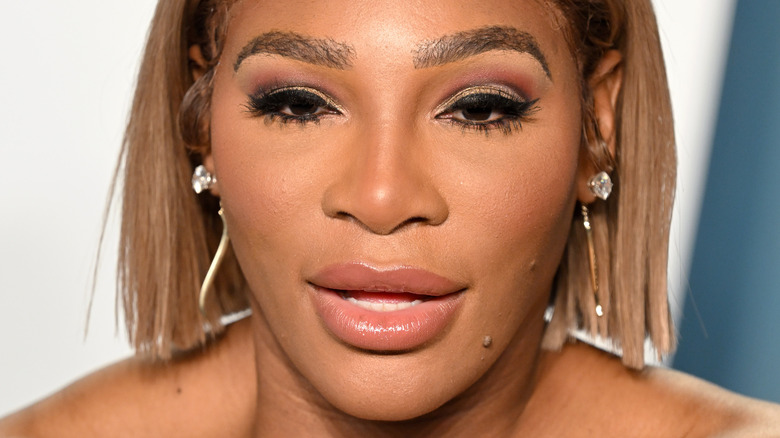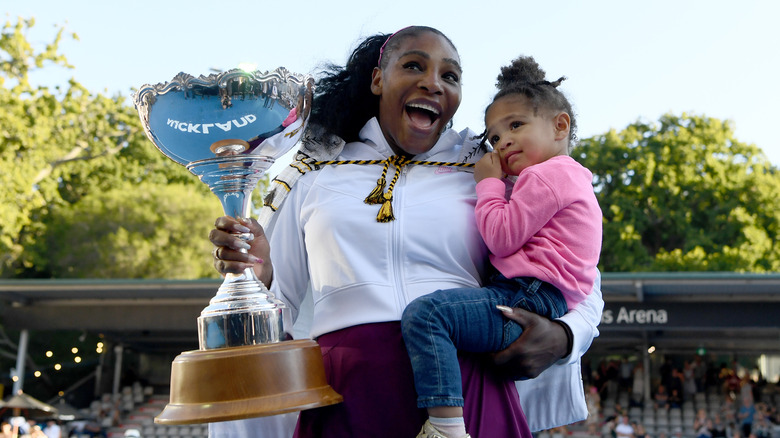Serena Williams Opens Up About Her Near-Death Experience After Giving Birth
Everyone who's ever been to history class knows that before modern medicine, a person giving birth had about a 50/50 chance of survival. Things have gotten a lot better since then, but labor and delivery can still be dangerous — especially for Black women.
Even in America, and even if you're a wealthy and famous athlete widely recognized as the GOAT in your sport like Serena Williams, childbirth can be deadly. Williams' harrowing experience giving birth to her daughter Olympia had been in the news before, but the tennis star is now opening up in more depth than ever about her near-death experience.
In a new op-ed for Elle, Williams described the serious medical danger she was in right after her daughter was born, and how she had to fight for the medical professionals to listen to her concerns. "No one was really listening to what I was saying," she wrote, saying she knew she was at high risk for blood clots, but the nurses didn't seem to hear or understand her.
Serena Williams had to fight to be heard
In the emotional essay for Elle, Serena Williams explained that, as an athlete, she knows her body better than anyone. She also wrote that she knew she could have a blood clot, which could be life-threatening, but the nurses kept dismissing her concerns until they finally brought the doctor in.
"Being heard and appropriately treated was the difference between life or death for me," Williams wrote. "In the span of seven days, I had gone through four surgeries back-to-back, including my C-section. My body, my entire being, was just so tired at that point. When I first got home, I couldn't walk down the driveway."
While Williams made a full recovery, not everyone is so lucky, which is why she uses her story to raise awareness of maternal mortality globally, and in particular the risks for Black women. In a 2018 essay about her experience for CNN, Williams wrote, "Around the world, thousands of women struggle to give birth in the poorest countries. When they have complications like mine, there are often no drugs, health facilities or doctors to save them." The tennis champ is continuing to use her platform to speak out in the hopes of preventing other mothers from facing similar struggles.


